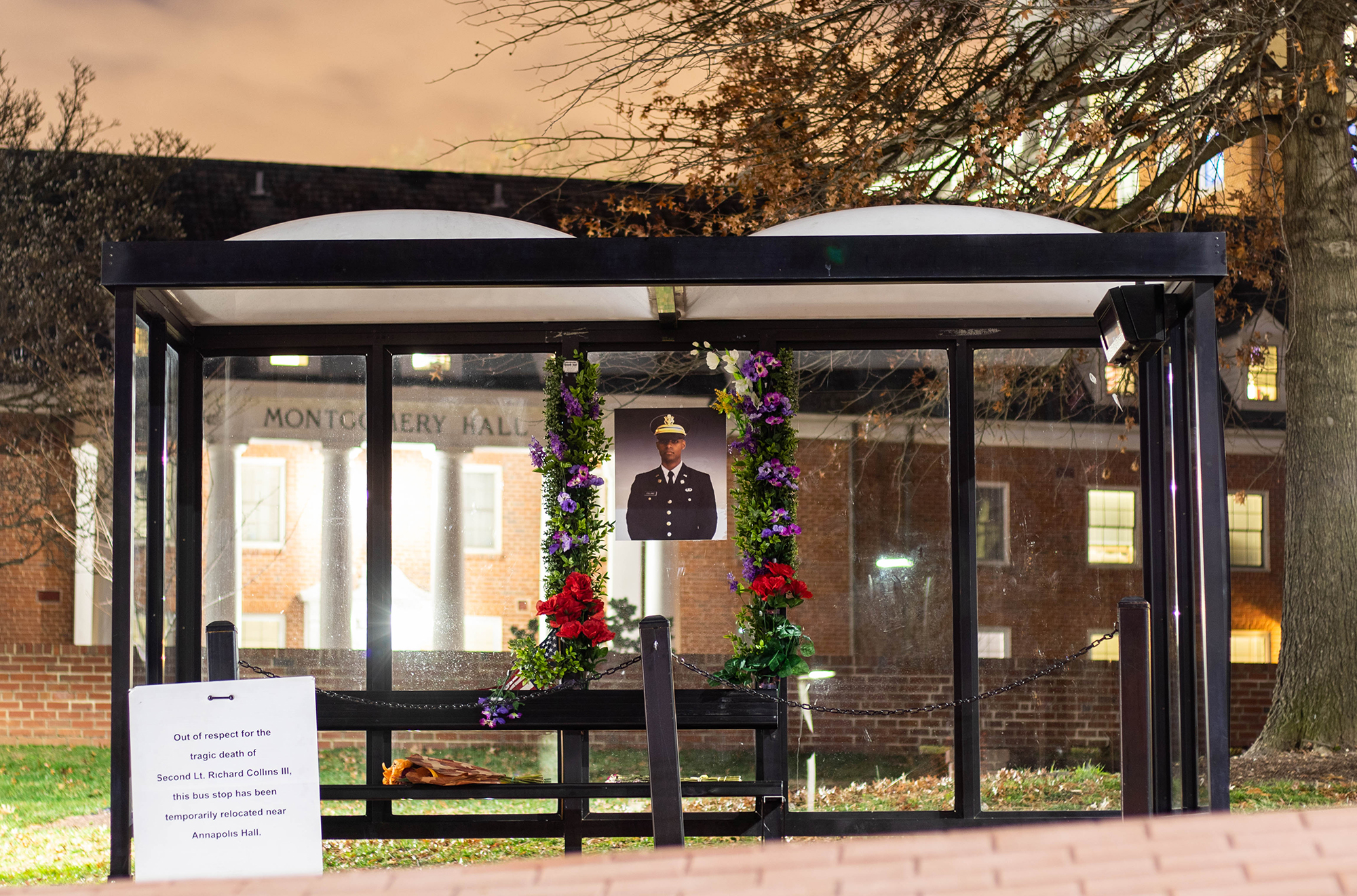Policymakers gathered with students and faculty from the University of Maryland and Bowie State University to talk about individual and community healing at a panel Friday.
The social justice alliance between Bowie State University and this university worked with the 2nd Lt. Richard W. Collins III Foundation to invite policymakers to the Samuel Riggs IV Alumni Center for the “Healing from Hate: Advancing Racially-Equitable Policies” panel.
The Social Justice Alliance said it continues to honor Collins, a Bowie State University student who was murdered by a student of this university in 2017. The lieutenant’s father, Richard Collins Jr., said the alliance between this university, a predominantly white institution, and Bowie State University, a historically black college, should not go unnoticed.
Collins Jr. said since his son died, he has been provided a “spiritual renewal” through the people who share their time with the Collins family. However, he recounted when the University of Maryland Police Department notified him of his son’s death at this university almost five years ago.
“In that moment, the only two thoughts that came across my mind were first, ‘God, why?’” Collins Jr. said. “Then it was, ‘God, where can you go from here?’ So it’s from this lowest vantage point that we pick up the pieces of our shattered lives … While we’ve come quite some distance since this journey began, we also understand that we still have a great distance.”
[Black student leaders and UMD admin discuss 25 demands at town hall]
In the wake of Collins’ death, this university as well as state and local governments have implemented policy changes.
Senior public policy major Joshua Winston said the Bias Incident Support Services office has been expanded, which makes it easier for students to report bias incidents, allowing the university to receive more accurate data.
“Usually there are already mechanisms on campus working, you just have to find them,” Winston said. “If we’re talking … about data, revising student services, and that is something that is already on campus and working. There are students who need more awareness.”
Del. Jazz Lewis (D-Prince George’s) and Prince George’s County state’s attorney Aisha Braveboy advocated for a change in the hate crime statute in Maryland after Collins’ murderer’s hate crime charge was dropped in court. Lewis said Maryland’s hate crime statute was based on whether the sole intent of the crime was racially motivated at the time of Collins’ death.
Braveboy said Collins’ family lobbied for the 2nd Lt. Richard Collins III Law, which passed in March 2020. Now, prosecutors have to prove hate was the “substantial motivating factor” of a crime, she said.
“We will now be able to hold more people fully accountable for their crimes when they are motivated by hate,” Braveboy said.
[‘It gives me hope’: UMD students, faculty reflect on Ketanji Brown Jackson’s confirmation]
Darren Swain, a Bowie State University alum, said as a former legislator, he couldn’t legislate people’s emotions and feelings toward other people, but he could attempt to make sure there are legal consequences for people’s actions. He said teaching understanding and forgiveness is needed in society.
“Those are the things that in our communities we have to embrace, we have to teach,” Swain said. “It has to start at home.”
Maryland Senate candidate Raaheela Ahmed, who was on the Prince George’s County Board of Education, said she has been looking at changes to the K-12 education level. For example, students in the county will need to take a course in ethnic and cultural studies.
Ahmed said schools need to take a “serious” look at decriminalizing student behavior and dismantling the school-to-prison pipeline.
“If we’re really talking about how do we reduce hate, it starts young,” Ahmed said. “And it starts with taking some of these bold avenues to make those changes.”



